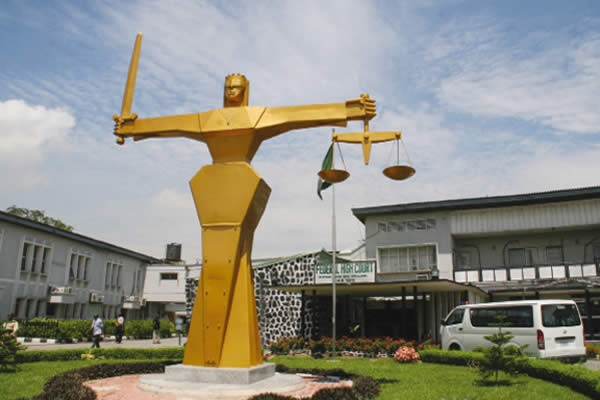Legal matters
California Woman Faces Six Years in Jail for Registering Dog to Vote

By: Fabian Apechihin
A California woman accused of registering her dog to vote has appeared in court, facing felony charges that could carry a sentence of up to six years in prison.
Laura Yourex, 62, from Costa Mesa, south of Los Angeles, drew attention in 2021 when she posted a photo of her dog, Maya Jean, wearing an “I Voted” sticker during the state’s gubernatorial election. In October 2024, she shared another post showing Maya’s dog tag alongside a vote-by-mail ballot, captioned: “Maya is still getting her ballot,” despite the dog having died.
Authorities say Yourex later reported herself to election officials, prompting an investigation. Prosecutors charged her with multiple felonies, including perjury, submitting false documents, illegally casting a ballot, and registering a fictitious voter.
Appearing briefly in court Tuesday without entering a plea, Yourex’s attorney, Jaime Coulter, said her client regretted the act but insisted she was attempting to expose flaws in California’s voting system. “Laura Yourex sincerely regrets her unwise attempt to highlight vulnerabilities in voter registration,” Coulter told reporters.
Under California election law, citizens can register to vote by filing an affidavit with personal details under penalty of perjury, without the need to provide proof of residence or identification for state elections. The Orange County District Attorney’s office noted that Maya Jean’s 2022 primary ballot was flagged and rejected.
The case comes amid renewed political debate over election integrity. Republican figures have frequently claimed—without evidence—that voter rolls contain non-citizens and deceased individuals, while election officials maintain safeguards are in place to detect fraud.
Do you want me to keep the political angle at the end, or would you prefer a version that sticks strictly to the court case details?
Legal matters
Withheld Allocation: Supreme Court Reserves Judgment in Osun Government’s Case

By: Fabian Apechihin
The Supreme Court on Tuesday reserved judgment in the suit filed by the Osun State Government against the Attorney-General of the Federation (AGF), Lateef Fagbemi (SAN), over the alleged withholding of statutory allocations due to the state’s 30 local government councils.
A seven-member panel of justices, led by Justice Uwani Aba-Aji, reserved the judgment after hearing arguments from Osun’s counsel, Mr. Musbau Adetunbi (SAN), and Chief Akin Olujimi (SAN), who represented the AGF. Justice Aba-Aji said the date for the judgment would be communicated to all parties in due course.
The Osun State Government approached the apex court seeking an order compelling the Federal Government to release withheld funds and stop what it described as the “unconstitutional and arbitrary seizure” of local government revenues since March 2025.
Adetunbi told the court that the state was seeking ten reliefs supported by eleven grounds and a 35-paragraph affidavit. He argued that the AGF ignored valid judgments of the Federal High Court in Osogbo (delivered on November 30, 2022) and the Court of Appeal (June 13, 2025), which affirmed the legitimacy of council chairmen and councillors elected on February 22.
The state maintained that the AGF’s directive in a March 26, 2025 letter to withhold local government funds pending the resolution of a political dispute violated these judgments and exceeded his constitutional powers.
Among the reliefs sought, Osun asked the court to declare that the AGF lacked the authority to seize local government funds, that his actions contravened existing court rulings, and that all withheld allocations should be released directly to the duly elected councils. It also requested a perpetual injunction restraining any future withholding of such funds.
The state further raised five constitutional issues for the court’s determination, including whether the AGF is bound under Section 287 of the 1999 Constitution (as amended) to enforce the decisions of the Federal High Court and the Court of Appeal, and whether his March 26 directive can stand in light of those rulings.
In opposition, Chief Olujimi, representing the AGF, filed a preliminary objection urging the court to dismiss the suit. He argued that the Osun Government lacked the legal standing to invoke the Supreme Court’s original jurisdiction, insisting the matter was essentially a dispute between political parties rather than between a state and the federation.
The apex court’s judgment, when delivered, is expected to clarify the constitutional limits of the AGF’s powers regarding state and local government financial allocations.
(NAN)
Legal matters
IGP Sues Five Retired Senior Police Officers Over Alleged Age Falsification

By: Fabian Apechihin
Inspector-General of Police, Kayode Egbetokun, has filed criminal charges against five retired senior officers of the Nigeria Police Force, accusing them of manipulating their age records to unlawfully extend their service years.
Justice Yusuf Halilu of the FCT High Court has scheduled their arraignment for Thursday, September 25, 2025, on a 14-count charge bordering on conspiracy, forgery, and misconduct.
Those named in the charge sheet are Idowu Owohunwa, retired Assistant Inspector-General of Police; Benneth Igwe and Ukachi Opara, both retired Commissioners of Police; Obo Ukam Obo, retired Deputy Commissioner of Police; and Simon Lough, retired Assistant Commissioner of Police. Court documents also mentioned “others at large” allegedly linked to the offences.
According to the charges, Owohunwa in December 2024 allegedly altered his records to reflect July 20, 1970, as his date of birth, instead of his actual birth year. Igwe was accused of falsifying his birth year to 1968 instead of 1964, with inconsistencies also found in his enlistment papers, which alternately recorded 1988 and 1996 as his entry dates. Similarly, Lough allegedly adjusted his date of birth from May 14, 1967, to May 14, 1969, in July 2022, in breach of the Public Service Rules.
Prosecutors argued that the offences violate Sections 97, 161, 366, and 158 of the Penal Code.
The defendants, however, dismissed the case as politically motivated, linking it to a petition filed in January 2025 by the Integrity Youth Alliance, a civil society group led by Kelvin Adegbenga. The group had accused them of manipulating service records to prolong their tenure in uniform.
Following the petition, the IGP issued queries for serious misconduct on January 7, 2025. In his response, Owohunwa admitted to a “mix-up” in his APER Form, which had mistakenly listed his birth year as 1970 instead of 1967, but maintained that his appointment date of August 15, 1996, remained unchanged.
Igwe and Lough also denied any wrongdoing, insisting the discrepancies were tied to the Administrative Staff College of Nigeria (ASCON) scheme, which allows officers to upgrade their records.
Despite their defence, police authorities maintained that the irregularities were serious enough to warrant prosecution, stressing the need to uphold integrity and compliance with public service regulations.
Do you want me to make this more concise for a breaking news report, or keep it as a detailed feature-style piece like above?
Legal matters
Ansaru leader jailed 15 years for illegal mining

A Federal High Court sitting in Abuja has sentenced a captured leader of the proscribed Ansaru terrorist group, Mahmud Muhammed Usman, also known as Abu Bara’a, to 15 years in prison for illegal mining.
Usman, from Okene Local Government Area of Kogi State, was arrested alongside another top Ansaru commander, Abubakar Abba, also known as Isah Adam or Mahmud Al-Nigeri, who hails from Daura, Katsina State.
The duo were arraigned by the Department of State Services (DSS) on 32 counts bordering on terrorism, kidnapping, attacks on military formations, illegal mining, and links with foreign jihadist groups in Mali.
Of the charges, Usman pleaded guilty to count 10 on illegal mining. Presiding Judge, Justice Emeka Nwite, consequently convicted him and handed down the 15-year sentence.
Usman, popularly known as Abu Bara’a or Abbas Mukhtar, was arrested earlier this year in a covert operation by the Department of State Services (DSS). On Thursday, he was handed a 15-year prison term by a Federal High Court in Abuja after pleading guilty to charges of illegal mining, one of the 32 terrorism-related counts brought against him.
The conviction, presided over by Justice Emeka Nwite, came after the DSS arraigned Usman alongside his associate, Abubakar Abba, also called Isah Adam or Mahmud Al-Nigeri, a native of Daura in Katsina State. Both men were accused of playing commanding roles in Ansaru, an extremist faction that broke away from Boko Haram in 2012 and has since operated across northern Nigeria and parts of the Sahel.
Court documents presented by the DSS detailed a chilling record of crimes committed by Usman and his accomplices between 2013 and 2025. These included: Kidnappings for ransom where the duo allegedly masterminded multiple high-profile abductions, including that of Alhaji Musa Umar Uba, the Magajin Garin Daura, in 2019; traditional rulers, Fulani leaders, and security officials across Katsina, Niger and Kebbi States; and several civilians, with ransom sums ranging from ₦1.5 million to ₦25 million.
They also reportedly received combat training from Al-Qaeda-linked Jama’atu Nusratil Islam Wal Muslimin (JNIM) in Mali, including in the use of improvised explosive devices (IEDs), arms handling and guerrilla tactics. The suspects were accused of participating in the 2022 assault on Wawa Cantonment of the Nigerian Army in New Bussa, Niger State, which left numerous casualties.
Usman, the first defendant, admitted to running mining operations that funded terrorist activities, a crime that ultimately sealed his conviction in Thursday’s proceedings.
However, despite facing a string of terrorism charges, Usman opted to plead guilty to a lesser count illegal mining under the Terrorism Prevention and Prohibition Act, 2022. His admission allowed the court to deliver a conviction, while the other counts remain under scrutiny.
Justice Nwite, in his ruling, noted that the plea bargain did not erase the gravity of the allegations but stressed the importance of holding suspects accountable under the law. He sentenced Usman to 15 years’ imprisonment.
His co-defendant, Abubakar Abba, pleaded not guilty to all charges. The case against him continues.
The conviction bring to the fore two critical realities in Nigeria’s counter-terrorism landscape. First, it demonstrates the DSS’s capacity to track, arrest and prosecute top extremist leaders, a feat that had long eluded security forces. Second, it signals that Nigeria’s judiciary is increasingly willing to tackle terrorism cases head-on, despite their complexity.
Ansaru, once considered a weakened faction, has re-emerged in parts of north-western Nigeria in recent years, exploiting banditry networks and illicit mining to finance its operations. The group maintains links with Al-Qaeda affiliates in the Sahel, posing a dual threat to both Nigeria and regional stability.
Nigeria has in recent months accelerated its prosecution of terror suspects, with the Office of the National Security Adviser, the DSS, and the Ministry of Justice working closely to fast-track cases in Kainji in Niger and Borno states.
However, the long list of counts against Usman and Abba, including allegations of kidnappings, ransom payments, and international terror training, pointing to the scale of challenges Nigeria faces.
As one counter-terrorism analyst put it: “The conviction of an Ansaru commander is not the endgame it’s the beginning of a stronger fight against the enablers and financiers of terror in Nigeria.”
-

 Uncategorized5 years ago
Uncategorized5 years agoFG, states urged to harness flooding for ranching, others with technology – Agbaje
-

 Headlines10 years ago
Headlines10 years agoBreaking: EFCC seals Borno House of Assembly, as Hon members take to their heels
-

 News11 years ago
News11 years agoNigeria Security Operatives Stage Manhunt For Homosexual Perpetrator
-

 News9 years ago
News9 years agoHow 21-year-old Girl fled community over accusation of lesbianism
-

 News10 years ago
News10 years agoYobe Gov Moves Against Deputy
-

 Opinion6 years ago
Opinion6 years ago7 signs she has friend zoned you
-
Technology4 years ago
Online job placement company headhunts women
-

 Headlines9 years ago
Headlines9 years agoBorno Dep Gov Abducts Another Church Leader





